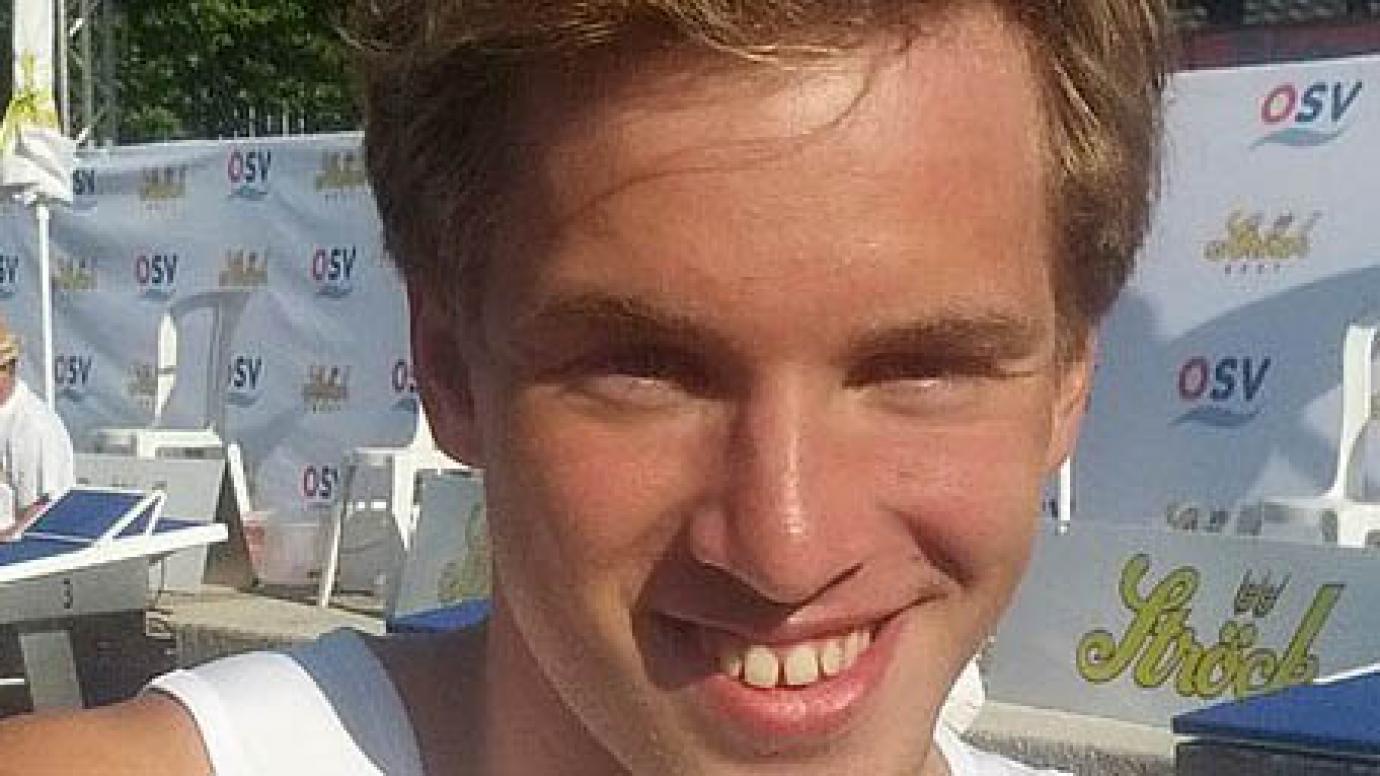How Andreas Onea turned an accident into action

Andreas Onea will always remember the date: May 3, 1998. It was more than 20 years ago, when he was just six years old, that the young Andreas was in a car accident with his family. His injuries were so serious that he thought he would die. In the end, his left arm needed to be amputated.
Who, then, would have bet on him becoming a sports star? Andreas himself only got into swimming more than a year after the accident, as part of the physical therapy in his recovery programme at RZ Weißer Hof in Klosterneuburg. “Swimming was part of my rehabilitation,” he says. “And step by step, I became a swimmer.”
Since then, he has broken swimming records, competed in European and World Championships, as well as the 2008 Paralympic Games in Beijing, the 2012 Games in London, and the 2016 Games in Rio de Janeiro – where he won a bronze medal in the men’s 100m breaststroke.
It has been hard, as Andreas acknowledges, but during his rehabilitation, he was inspired by watching how other disabled people made it. “I try to learn from everyone,” he says. “I was inspired by every one of those people with disabilities – even though they were not doing professional sports. They were moving, they were active. And this is what inspired me to do this as well, and to show other people with disabilities that it is possible to be active, even if something is missing or you are not as good at some stuff as others are.”
Andreas’s record is impressive. He was, at 16, the youngest Austrian athlete in the squad at the 2008 Beijing Paralympics, where he finished 6th in the class SB8 over 100m chest. In 2009 he won his first international medals at the European Championships in Reykjavík, and the Short Track World Championships in Rio de Janeiro. In 2012, he even won the 200m B-Final at the state championships of the non-disabled Austrian Swimming Federation.
He narrowly lost out on a podium place at the London 2012 Paralympic Games, coming just 26 hundredths of a second behind the eventual third-place finisher in the 100m breaststroke. But that only spurred him on to do better next time, and he changed his exercise regime – finding a permanent 50m pool, training more and harder, and improving his nutrition and mental training. In the midst of this, he also studied economics and social sciences at the Vienna University of Economics and Business. And he has developed his media profile, hosting the ORF television show Ohne Grenzen (‘Without Borders’) raising awareness of sport in Austria.
Throughout his journey, Andreas has always been an advocate for sport for all – especially swimming. “You can really see where your limits are. And you can see how you can overcome those limits. Swimming is such an honest sport: if you do not train, you are not fast. If you do train hard, you can get good,” he says.
Andreas admits that training can be tough. “You really have to do a lot of km, up and down, up and down, mostly alone. It can be very frustrating at times, so you really have to be able to motivate yourself and know your goals so you can be disciplined and go through it,” he says. Most of his training is in indoor pools, but sometimes he mixes it up with gym and athletic work. And in the summer, he will train outside. “I really enjoy it because I like the sun to see me. It’s good to get outside and breath the clean air,” he says.
Andreas takes his work as a European Week of Sport Ambassador seriously. “It is very, very important to get people moving more, especially at a European level. We can reach a lot of people and we can motivate them to do this,” he says. “Even if you have a disability, you can show people that you can have a healthy lifestyle and be active on a regular basis. I want to show people with disabilities, but also people without disabilities, and the European Week of Sport platform can help do that.”
His own unlikely story is compelling – not least that he had never swum before his accident. “I only started afterwards,” he says. “I only know swimming with one arm. I can’t imagine what it is like to swim with two arms!”
Today, he is determined to show that a disability does not necessarily mean a limited quality of life. And he wants everyone to #BeActive. “Just get started,” he says. “It sounds so easy, and really it is. We just need to find something that we really enjoy. If it is taking a walk outside when it is sunny – or even if it is rainy, if that is what you like! – just start with little steps.”
Last updated:


